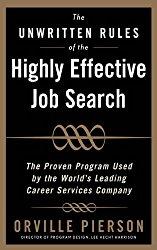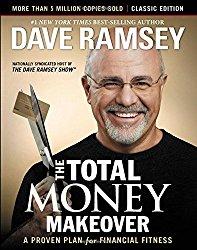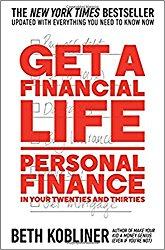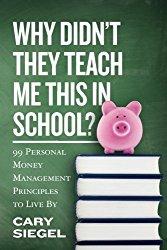My son, who is a junior in high school, asked me tonight if I could talk to a friend of his who was a senior and who was going to be leaving his house soon and start out on his own. His friend didn’t know anything about personal finance and wasn’t sure how to get started. My son wondered if I could give him some advice on money management and how to get set-up in the adult world.
That got me thinking. Hopefully most children have some sort of help with the transition. Maybe their parents help them get into their first apartment and then they start to pay their rent from a job. Maybe they go off to college, which their parents help finance, and then they get a job before leaving school, or come back home for a month or two while they look for a job after college.
But what if you were a couple of months away from graduating high school, and your parents just said that once you graduate, you were on your own? You just needed to leave home, maybe graduation night, and do whatever you could? How would you prepare, and what would you do?
Hey – if you like The Small Investor, help keep it going. Buy a copy of SmallIvy Book of Investing: Book1: Investing to Grow Wealthy, buy one of the products shown, or just click on one of the product links and then browse and buy something else you need from Amazon’s huge collection. The Small Investor will make a small commission each time you buy a product through one of our links.

Hopefully you would have a little time. Let’s say that you had three months to prepare. Here are the things that I would do:
1.Look at the basics: Food, shelter, clothing.
To survive, you would need to figure out how you could acquire the basics. How would you get money for food, shelter, and clothing? Food for one person would probably be about $200 per month if you planned to eat at home, cook your meals from basic ingredients, and rarely if ever eat out. Shelter could be somewhere between $200 and $400 per month, depending on where you live, if you did things like rent with a roommate, rent a room in a house, or look for other ways to save money. You therefore would need to make somewhere in the vicinity of $10,000 – $12,000 per year to pay for the bare necessities for yourself (no children here).
You might be able to get a job that includes shelter (and maybe even food) such as a nanny or live-in housekeeper. You might also be able to cut your rent by helping your landlord take care of the place by helping with yard care and maintenance. A little creativity goes a long way when you’re scraping by at the start of life.


2. Think about work.
To gain the money needed for food, shelter, and clothing, you would need to have a job. To just cover your basic expenses, you really could make it with a full-time minimum wage job at the start. While you might start out as a fairly basic job, you should use the first job (and the jobs after that until you land your dream job) to learn skills that will help you get a better job. If you work in a fast food restaurant, use it to learn things like how a business runs, how to please customers, and how to deal with coworkers. You should also be looking for whatever training your employer can provide since the more skills you have, the more money you can make.
3. Save up a baby emergency fund.
You probably won’t be able to gather up a full emergency fund of $9,000-$12,000 with your first job, but at least work hard to save up a baby emergency fund of $1,000 or so. That money will help with some things like a car repair, a short job loss, or a minor illness. Ideally you should save this money up before you even leave the house. If you can’t, save as much as you can from your job (and maybe a second job) to get there as soon as you can.


.4. Figure out college or a trade school.
Even if you don’t have help from parents, you should look at college or training in a trade. Luckily, if your parents do not make a lot of money, you will probably be able to go to school for free or nearly free through grants and financial aid. This might involve a work-study program, but there is nothing wrong with working part-time in the school cafeteria in exchange for thousands of dollars in tuition being waved. If your parents do make a lot of money, but simply cut you off, it will be a bit more difficult since the schools may still expect you to be able to get help with tuition from your parents. Using community colleges, that cost a lot less, for the first couple of years and then transferring to a university to complete the degree might be a good way to keep costs down.
Also, if you’d rather work with your hands than sit at a keyboard all day, many trades pay as well or better than jobs for those with college degrees. Electricians and plumbers can do very well, especially if you eventually start your own business, as do technicians, nurses aides, and other jobs that require an apprenticeship or a couple of years at a trade school.
5. Move your way up the ladder.
College is one way to possibly increase your pay, but it is not the only way. You make more money when you become more valuable and are able to serve more people. If you have a special skill, are able to lead people, or are able to manage large projects, you can make more money. Always be looking for ways to get additional training and experience through your work and other opportunities that present themselves. Also always be looking for the next opportunity, either within your business or outside.
Realize that volunteer work can give you opportunities to learn new skills You might not be able to get to lead a large project at work, but you’ll probably be able to organize charitable events such as food drives and can-ups since few people are wiling to step forward to do so. You can also meet people you might not otherwise. Some of the best people volunteer, including community leaders and small business owners who could be your net boss.

Have a burning investing question you’d like answered? Please send to [email protected] or leave in a comment.
Follow on Twitter to get news about new articles. @SmallIvy_SI
Disclaimer: This blog is not meant to give financial planning or tax advice. It gives general information on investment strategy, picking stocks, and generally managing money to build wealth. It is not a solicitation to buy or sell stocks or any security. Financial planning advice should be sought from a certified financial planner, which the author is not. Tax advice should be sought from a CPA. All investments involve risk and the reader as urged to consider risks carefully and seek the advice of experts if needed before investing.
